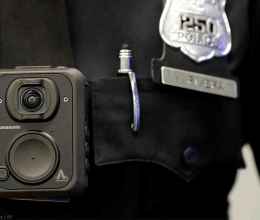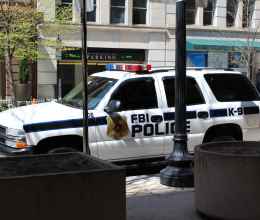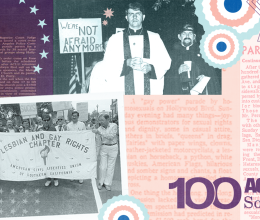
Although the ACLU of Southern California supports body cameras in principle, we oppose the LAPD’s use of body cameras under the policies put forth by the department and approved by the Los Angeles Police Commission in April 2015. These policies suffer from serious flaws that undermine the goals of transparency and accountability that the body camera program should serve and undercut public trust that the cameras should be building. Our chief concerns regarding LAPD’s policy include:
- The policy completely fails to provide for any public access to body camera video. In public statements, both LAPD Chief Charlie Beck and high-ranking members of the department have repeatedly said that the department will treat body-worn camera videos as categorically exempt from disclosure under California’s public records law and will not release those videos unless required to do so in court proceedings. But the department also “reserves discretion” to release videos when the chief believes it would be “beneficial.” This lack of a policy creates the impression LAPD may release video that exonerates officers but not video that shows misconduct – an impression that only hurts public trust.
- It also provides no clear limitation against use of body camera footage as general surveillance of the public, such that the department remains free to use body cameras to track First Amendment-protected activity and to use other tools, such as facial recognition technology, in conjunction with body camera video.
- The policy allows officers under investigation for serious uses of force and misconduct to view body camera footage before making even an initial statement to investigators, thereby undermining the integrity of the investigative process.
- After an 18-month-long process, the department released the proposed policies late on a Friday afternoon and the Police Commission approved them less than two business days later. This short time span did not provide a meaningful opportunity for public debate or feedback on the concrete terms of the department’s proposed policy. Nor did it allow the commission to carefully review and evaluate its terms, much less to solicit independent evaluation from experts, before giving approval.
Developments
After one councilmember calls for reopening the bidding process, ACLU SoCal and partners submit a letter to Mayor Garcetti and the L.A. City Council urging that every aspect of the program was rushed, not just the bidding, and calling on them to take this opportunity to demand not only that the contract bidding process be fair, but also that the public process be open, and that LAPD’s policies be substantially revised to align with the public’s interests in the cameras and the City’s stated goals in adopting them. Read the letter.
L.A. City Council delays its vote on LAPD's proposed body cam program and refers the item to its Public Safety Committee and Budget & Finance Committee.
ACLU SoCal submits a letter to L.A. City Council urging it to withhold approval of LAPD's proposed body cam program. ACLU Letter to LA Mayor and City Council (12-15-2015) (1).
The Department of Justice responded to ACLU SoCal’s letter. Read the DOJ’s response.
The Department of Justice announces the first round of grants to agencies for body cameras, including a $1 million grant to LAPD. See the full list.
ACLU SoCal asks the Department of Justice to withhold grant money to the LAPD for body cameras, because of LAPD’s poor policy. Read the letter.
The LAPD begins the roll-out of its full body camera program, starting with the Mission, Newton and Central traffic and specialized divisions.
The L.A. Police Commission hears an update from the LAPD about progress towards the roll-out of the full 7,000-camera program. ACLU SoCal submits a third letter presenting the commission with 300 pages of materials demonstrating the reasons why critical aspects of the policy should be changed (See Index of Materials). Read the letter.
The L.A. Police Commission votes 3-1 to approve the LAPD’s policy. The dissenting Commissioner shared many of the ACLU SoCal’s concerns about the policy as well as the process for how it was developed and finalized. The commission agrees that it may revisit certain aspects of the policy as needed once body cameras are in place.
The LAPD releases its proposed policy, which required approval by the L.A. Police Commission, late on a Friday afternoon. The ACLU SoCal submits a second letter to the police commission, emphasizing the concerns above and urging it to hold off on approving the LAPD’s policy. Read the letter.
The L.A. Police Commission holds two public meetings on body camera policies.
The LAPD begins a pilot program for body cameras, and begins considering policies to govern their use. ACLU SoCal submits the Police Commission a letter outlining its hopes and concerns for the policy. Read the letter.
The L.A. Police Commission announces its intention to pilot a body camera program.





